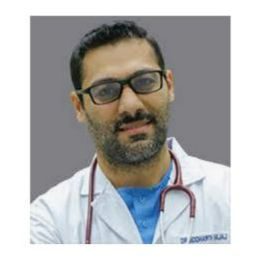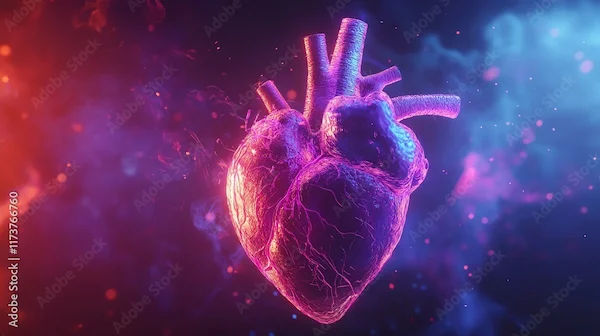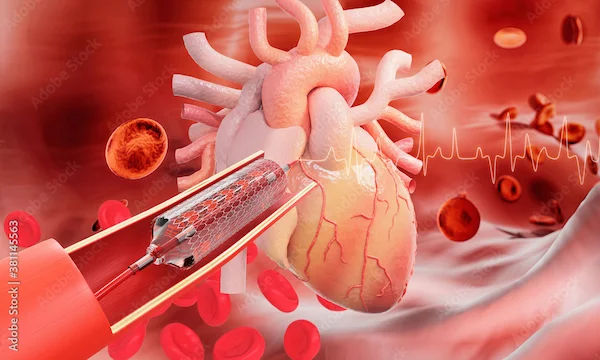Precautions After Angioplasty
Learn essential post-angioplasty precautions that may support recovery, reduce risks, and help maintain long-term heart health.

Written by
Last updated on 7th Jul, 2025

Introduction
Undergoing angioplasty is a significant step toward improving heart health, but the journey doesn’t end there. Proper care and precautions after the procedure are crucial to ensure a smooth recovery and prevent future complications. If you or a loved one has recently had angioplasty, this guide will help you understand the essential precautions to follow for a healthier heart.
Understanding Angioplasty
Angioplasty is a minimally invasive procedure used to open blocked or narrowed coronary arteries (blood vessels supplying the heart). A small balloon is inflated inside the artery to widen it, and often, a stent (a tiny mesh tube) is placed to keep the artery open. This helps restore normal blood flow and reduces the risk of heart attacks.
While angioplasty is effective, recovery requires lifestyle changes and medical follow-ups to maintain heart health.
Consult Top Specialists for Personalised Heart Health Advice
Immediate Post-Angioplasty Care
In the days immediately following the procedure, certain precautions may support initial healing and prevent complications.
1. Rest and Avoid Strain
Giving your body adequate rest right after the procedure may reduce the risk of complications and promote healing.
For the first 24-48 hours, avoid heavy lifting, strenuous activities, or bending excessively.
Walking short distances is encouraged to promote circulation, but avoid vigorous exercise.
2. Care for the Wound Site
Proper wound care is important to prevent infection and ensure smooth healing at the catheter insertion site.
The catheter insertion site, usually the wrist or groin, may be sore. Keep it clean and dry.
Avoid soaking in baths or swimming for at least a week to prevent infection.
3. Watch for Warning Signs
Contact your doctor immediately if you notice:
Excessive bleeding or swelling at the wound site.
Severe pain, numbness, or discolouration in the arm/leg where the catheter was inserted.
Chest pain, shortness of breath, dizziness, or fever.
Long-Term Precautions After Angioplasty
Long-term care plays a key role in maintaining the benefits of the procedure and reducing the risk of future cardiac events.
1. Take Prescribed Medications Religiously
After angioplasty, your doctor will prescribe medications to:
Prevent blood clots
Control cholesterol
Manage blood pressure
Reduce chest pain
Never stop or skip medications without consulting your doctor.
2. Follow a Heart-Healthy Diet
Making informed food choices might support better heart health and overall recovery.
Limit unhealthy fats: Avoid fried foods, processed snacks, and fatty meats.
Increase fibre intake: Whole grains, fruits, vegetables, and legumes help lower cholesterol.
Reduce salt: Excess salt raises blood pressure. Opt for herbs and spices instead.
Eat lean proteins: Fish rich in omega-3, skinless poultry, and plant-based proteins.
Avoid sugary foods and drinks: Excess sugar contributes to weight gain and diabetes.
3. Exercise Regularly (But Wisely)
Physical activity can be highly beneficial, but it should be introduced gradually and safely.
Start with light walking and gradually increase activity under medical supervision.
Aim for 30 minutes of moderate exercise (like brisk walking, cycling, or swimming) most days.
Avoid heavy weightlifting or intense workouts unless approved by your doctor.
4. Quit Smoking and Limit Alcohol
Avoiding harmful substances might improve your recovery and lower your risk of complications.
Smoking damages arteries and increases the risk of re-blockage. Seek help to quit if needed.
Limit alcohol to moderate levels (1 drink per day for women, 2 for men).
5. Manage Stress
Chronic stress can worsen heart health. Try:
Deep breathing exercises or meditation.
Yoga or gentle stretching.
Engaging in hobbies or social activities.
6. Monitor Vital Signs Regularly
Keeping track of key health indicators may help detect problems early.
Check blood pressure and blood sugar if you have hypertension or diabetes.
Keep track of cholesterol levels through routine tests.
7. Attend Follow-Up Appointments
Regular check-ups help your doctor monitor stent function and adjust medications if needed.
When to Seek Emergency Help
Even with precautions, complications can arise. Seek immediate medical attention if you experience:
Chest pain or discomfort(similar to pre-angioplasty symptoms.
Severe shortness of breath.
Sudden dizziness or fainting.
Final Thoughts
Recovering from angioplasty requires commitment to a heart-healthy lifestyle. By following these precautions—taking medications, eating right, staying active, and avoiding harmful habits—you can significantly improve your heart’s health and reduce future risks.
If you have concerns or need guidance, consult a cardiologist through Apollo 24|7 for personalised advice and follow-up care. Your heart deserves the best care—start today!
Consult Top Cardiologists
Consult Top Specialists for Personalised Heart Health Advice

Dr. Bhethala Sharan Prakash
General Physician/ Internal Medicine Specialist
5 Years • MBBS MD
Bengaluru
PRESTIGE SHANTHINIKETAN - SOCIETY CLINIC, Bengaluru

Dr. Anand Ravi
General Physician
2 Years • MBBS
Bengaluru
PRESTIGE SHANTHINIKETAN - SOCIETY CLINIC, Bengaluru

Dr. Dayanashre N
General Physician
3 Years • MBBS
Bengaluru
PRESTIGE SHANTHINIKETAN - SOCIETY CLINIC, Bengaluru

Dr. Siddharth Bajaj
Cardiologist
10 Years • MBBS, M.D. D.M. (Cardiology)
Hyderabad
Apollo Hospitals Jubilee Hills, Hyderabad
Dr. Diganta Buragohain
Cardiologist
1 Years • "DM (Cardiology) in 2025 from NEIGRIHMS, Shillong MD (General Medicine) in 2020 Gauhati Medical College, MBBS in 2015 from Gauhati Medical College,"
Guwahati
Apollo Excelcare Hospital, Guwahati
Consult Top Cardiologists

Dr. Bhethala Sharan Prakash
General Physician/ Internal Medicine Specialist
5 Years • MBBS MD
Bengaluru
PRESTIGE SHANTHINIKETAN - SOCIETY CLINIC, Bengaluru

Dr. Anand Ravi
General Physician
2 Years • MBBS
Bengaluru
PRESTIGE SHANTHINIKETAN - SOCIETY CLINIC, Bengaluru

Dr. Dayanashre N
General Physician
3 Years • MBBS
Bengaluru
PRESTIGE SHANTHINIKETAN - SOCIETY CLINIC, Bengaluru

Dr. Siddharth Bajaj
Cardiologist
10 Years • MBBS, M.D. D.M. (Cardiology)
Hyderabad
Apollo Hospitals Jubilee Hills, Hyderabad
Dr. Diganta Buragohain
Cardiologist
1 Years • "DM (Cardiology) in 2025 from NEIGRIHMS, Shillong MD (General Medicine) in 2020 Gauhati Medical College, MBBS in 2015 from Gauhati Medical College,"
Guwahati
Apollo Excelcare Hospital, Guwahati

.webp)


